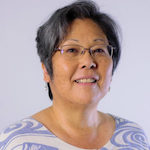
Readings:
Reading I: Acts 4:8-12
Psalm: 118:1, 8-9, 21-23, 26, 28, 29
Reading II: 1 Jn 3:1-2
Gospel: Jn 10:11-18
What is it about shadow and light that makes us take notice of what is always with us, namely the sun, the moon and the earth? Whether you were fortunate to be in a place to view the recent total eclipse, or even partial as in the 94% coverage in the Chicago area, it was an amazing experience that connected everyone present in awe and wonder during the transcendent four minutes. How is it that the sun is 400 times larger than the moon but also 400 times further away from the earth that makes it possible for the moon to create a perfect circle of light during the eclipse and cast its moon shadow upon the earth that briefly turns day into night? We can feel the psalmist’s awe and wonder in today’s entrance antiphon: “The merciful love of the Lord fills the earth; by the word of the Lord the heavens were made, alleluia!”
From the reading of the Acts of the Apostles, shadow and light interplay during the healing when it is affirmed that “in Jesus’ name this man stands before you healed.” Jesus is “the stone rejected by you, the builders, which has become the cornerstone.” The second reading confirms that the cornerstone is unconditional love “that we may be called the children of God.” This unconditional love is always with us, yet external disruptive events and internal dynamics cast shadows of doubt and aggressive reactions at worst, or at best, we simply move through our daily lives taking for granted the depth dimension that grounds our lives, like the “hired” person in John’s Gospel.
“A good shepherd lays down his/her life for the sheep.” Growing up in the cement jungle of urban Los Angeles, my images of sheep were of the Little Bo Peep story or counting imaginary sheep jumping over a fence in order to fall asleep. I truly learned about sheep during the decade I lived in the altiplano (high plains) of the southern Andes of Peru among the Aymara indigenous people. Every early morning along the dirt road by our adobe house, a woman shepherdess with a baby on her back would be taking out her small herd of sheep for grazing, walking behind them and usually also knitting or spinning yarn as she walked along the rocky path, giving a morning greeting as she passed by. The sheep knew their fields and their shepherdess, and vice versa. A young child often takes care of a spring lamb. Every sheep and animal have a name, thus “I know mine and mine know me, just as the Father knows me and I know the Father; and I will lay down my life for the sheep.”
“This is why the Father loves me because I lay down my life in order to take it up again” writes John’s Gospel. Laying down one’s life is as simple as sharing food. Yet the World Central Kitchen humanitarian workers gave their lives in the ultimate cost of war, amidst their Christlike generosity in Gaza. “For I was hungry and you gave me food; I was thirsty and you gave me drink.” (Mt 25: 35) This echoes the many civilian families doing the same for their children and each other. “As Christians, we are rooted in the hope of the resurrection, and so we pray for a just and lasting peace in the Holy Land” writes USCCB President Archbishop Broglio and Bishop Zaidan of the Maronite Eparchy of Our Lady of Lebanon in their March 23rd joint statement. Can we collectively join our efforts with God’s to be part of taking up life again by sharing in the deep sorrow of Pope Francis’ and heeding his Easter message? “One cannot move forward in war. We must make every effort to negotiate, to negotiate, to end the war. To move forward, a cease fire and permanent cessation of war and violence is absolutely necessary. To move forward, those held hostage must be released and civilians must be protected. To move forward, humanitarian aid must reach those who are in such dire need.” May the merciful love of the Lord fill the earth! May we be connected in awe and wonder at the unconditional love of God.
Joanne Doi M.M. Ph.D.
